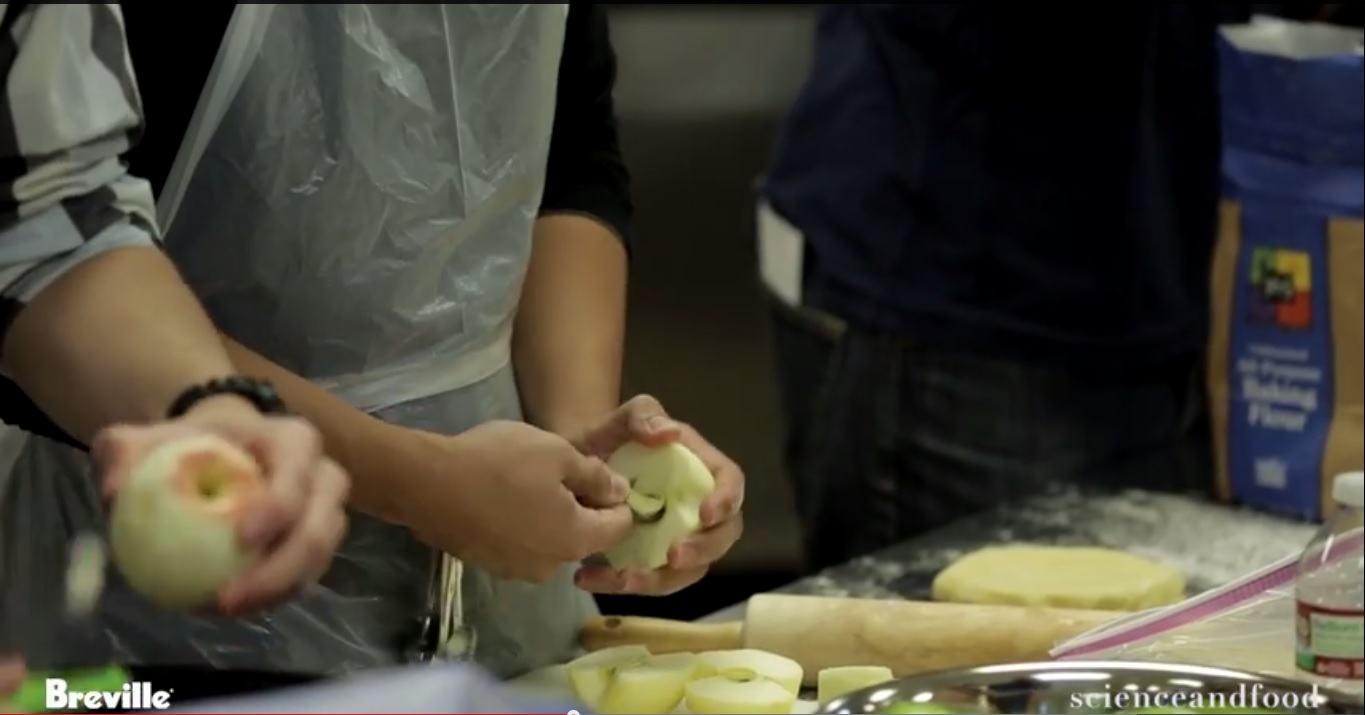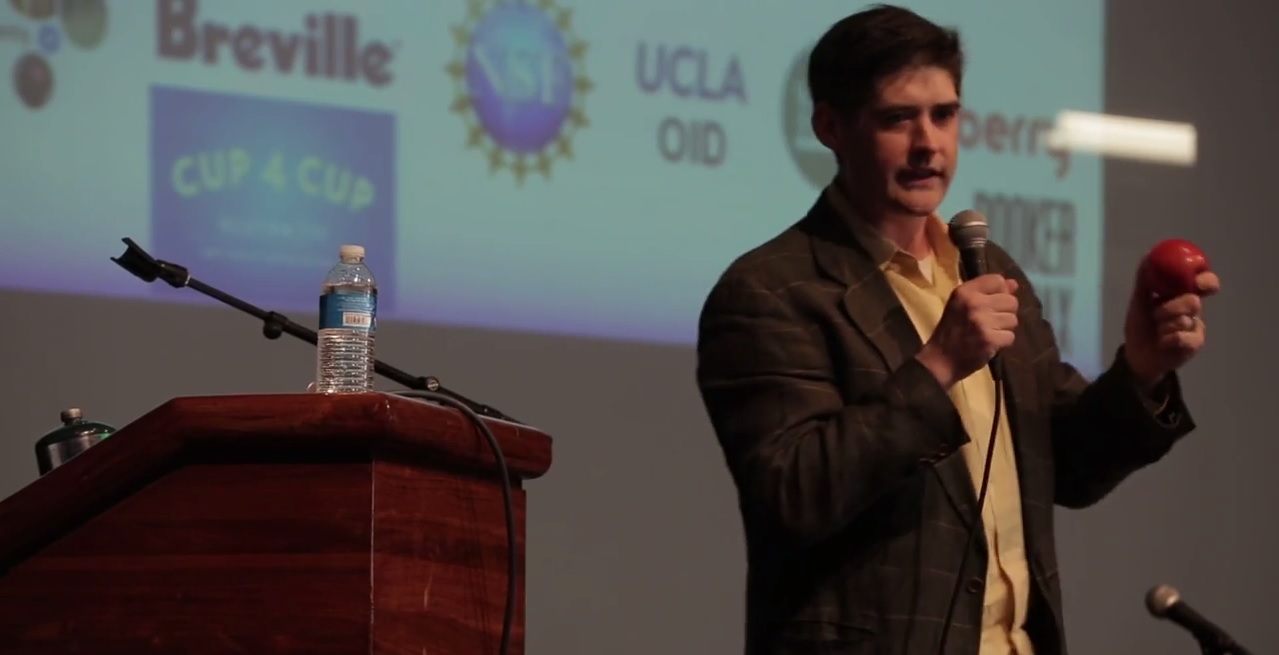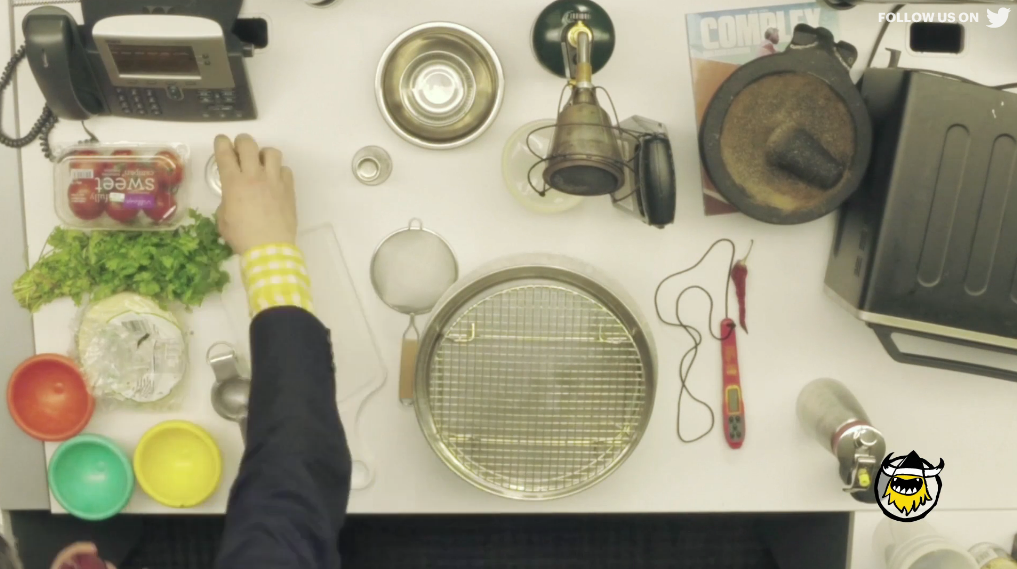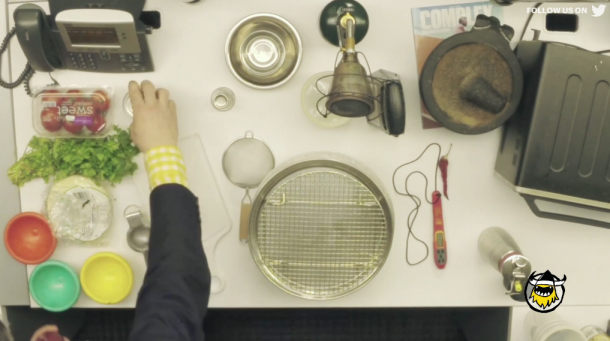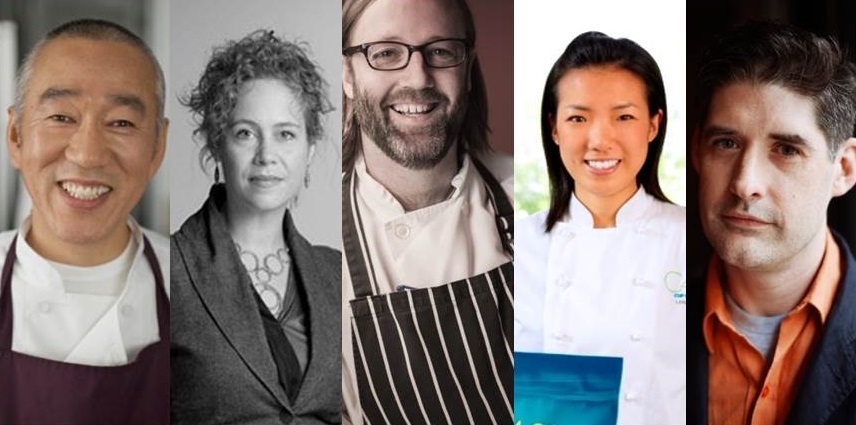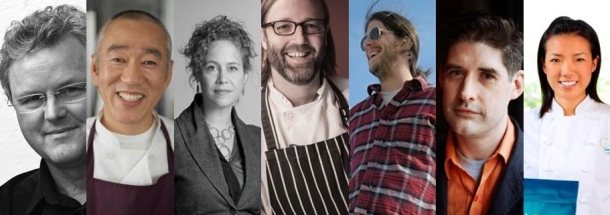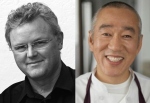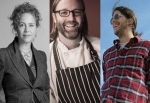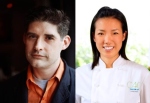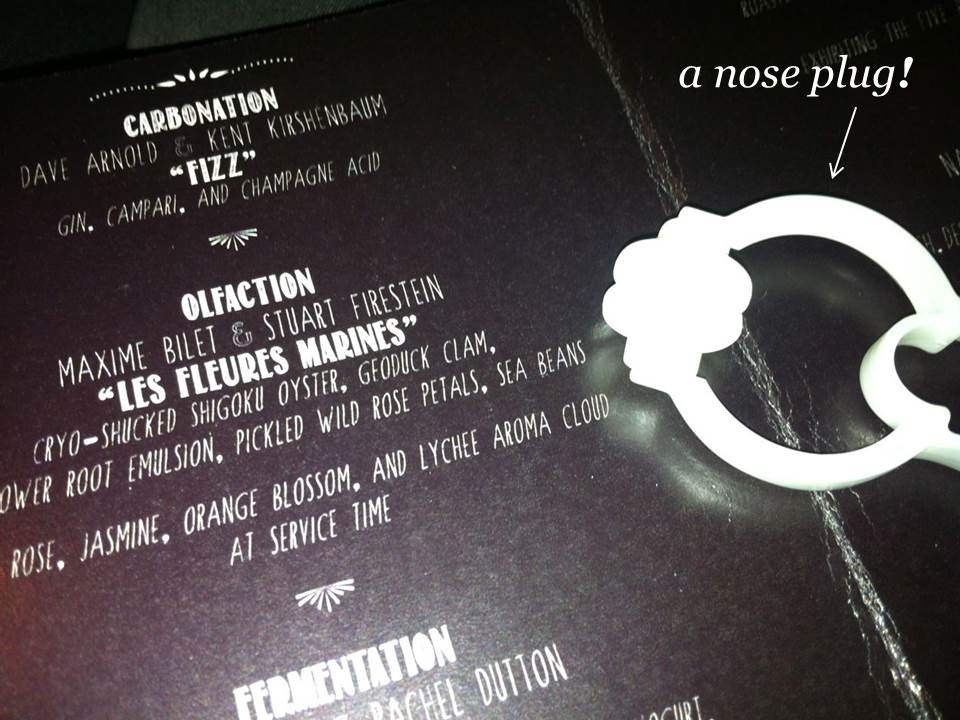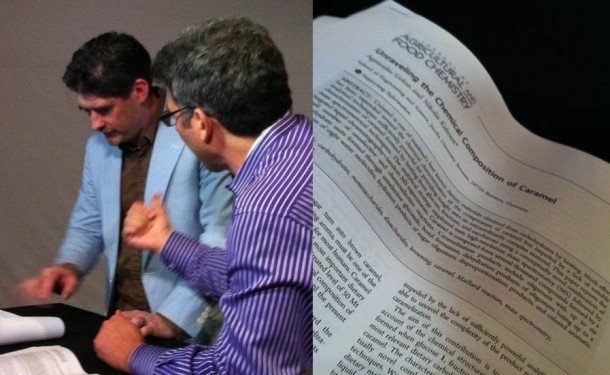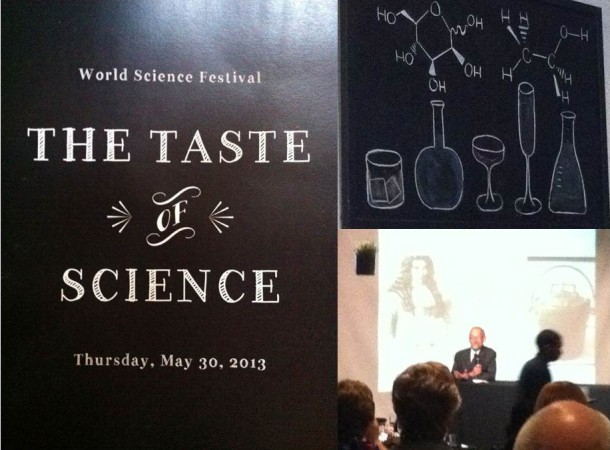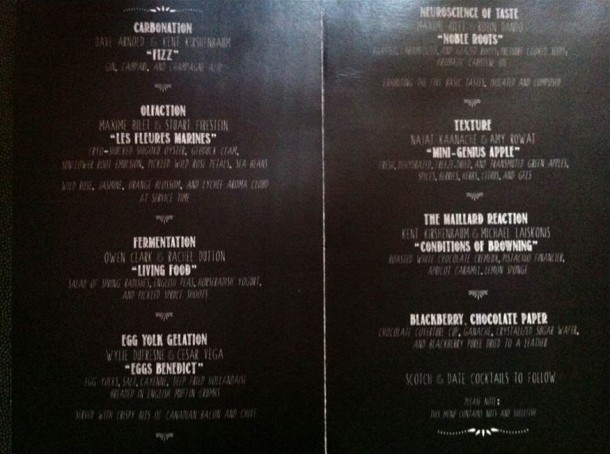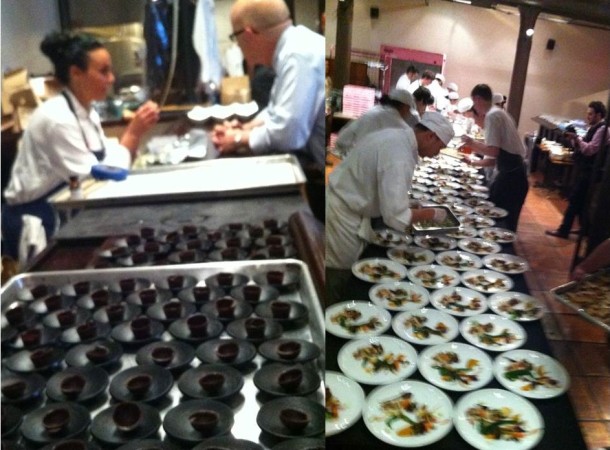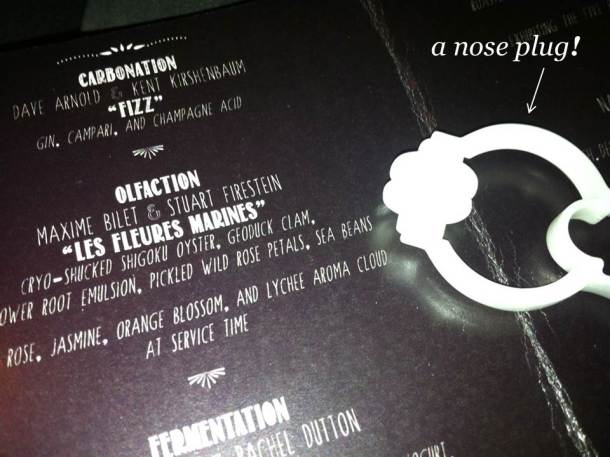
Photo Credits: (Flickr/ mutolisp)
Attendees of our Science of Pie event this past spring probably remember sampling gymnemic acid. For anyone who has never tried the bizarre substance, we describe here our first experience with it. Guest speaker Dave Arnold (Founder of the Museum of Food and Drink, and host of the radio show Cooking Issues), supplied everyone in the audience with a small capsule filled with a dusty green powder along with a strawberry, a sugar packet, and small amount of honey. He then instructed everyone to coat the surface of his or her tongue with the mysterious green powder, let it dissolve, and then swallow it. After the unpleasant herbal taste faded away, Arnold told the audience to empty the small sugar packet into his or her mouth. Now, sugar is usually the key to sweet desserts and happiness. But to anyone with a gymnemic-acid coated tongue, eating sugar was like face-planting at the beach and getting a mouthful of sand. The sugar was utterly unsweet. Eating honey felt like taking a swig of thick canola oil. The strawberry became tart and acidic. As the audience quickly realized, gymnemic acid has the peculiar property of inhibiting our perception of sweetness.
Gymnemic acid is precipitated from an aqueous extract of the leaves of Gymnema sylvestre, a tree found in Central and Western India, tropical Africa, and Australia. [1] The leaves of this tree have traditionally been used in Ayurvedic medicine. In fact, the Hindi name for the plant’s derivative, gurmar, means “destroyer of sugar.”[2] Only two other plants are known to have similar taste-altering effects: Bumelia dulcifica, which makes sweet and sour substances taste bitter, and of course the miracle berry of Synsepalum dulcificum, which makes sour things taste sweet. [1]
You may think to yourself, as anyone who has eaten gymnemic acid surely has, inhibiting sweetness is a miserable idea. Why are we manufacturing capsules of this? Gymnemic acid can do more than ruin your dessert. Today it is used to treat metabolic syndrome (a group of risk factors that raise one’s risk of heart disease, diabetes, and stroke), and even malaria. Gymnemic acid is also used to promote weight loss, stimulate digestion, and suppress appetite; it is also prescribed as a diuretic, laxative, and even a snake bite antidote. Gymnemic acid may treat diabetes, as it contains substances that inhibit the absorption of sugar from the intestine and stimulate the growth of cells in the pancreas, where insulin is produced. [2]
While the precise mechanisms of gymnemic acid on taste perception have not been completely elucidated, a few investigations have quantified the effects of gymnemic acid on taste and the timescales over which it operates. To determine the extent to which gymnemic acid diminishes sweet perception, a 1999 study measured the effect of a gymnemic acid oral rinse on taste perception. Their results showed that gymnemic acid reduced the sweetness intensities of sucrose and aspartame to 14% of reported pre-rinse levels. [3] These results also shed light on the timescale of taste alteration: Over a recovery period of 30 minutes, the sweetness intensity values increased linearly to a sweetness perception of 63% of the pre-rinse levels.
Another study performed at Kyushu University in Kukuoka, Japan has also shed some light on the molecular mechanisms underlying the behavior of this odd substance on our tongues. Gymnemic acid is not a pure, unique structure, but is composed of several types of homologues, or compounds of the same general formula. According to these studies, the transmembrane domain of Taste type 1 Receptor 3 (T1R3) is the primary site of the sweet-suppressing effect of gymnemic acids. The acid is predicted to dock to a binding pocket within the transmembrane domain of T1R3. [4] These findings could assist future drug design, and could perhaps lead to the synthesize of more substances that modify receptivity of sweetness. But maybe we should enjoy the wonderful sensation of sweetness as they are.
References cited
- Stoecklin, Walter. “Chemistry and Physiological Properties of Gymnemic Acid, the Antisaccharine Principle of the Leaves of Gymnema Sylvestre.” Journal of Agricultural and Food Chemistry 17.4 (1969): 704-08. ACS Publications. Web. 11 Sept. 2014.
- “Gymnema: Uses, Side Effects, Interactions and Warnings.” WebMD. WebMD, 2009. Web. 11 Sept. 2014.
- Gent, Janneane F., Thomas P. Hettinger, Marion E. Frank, and Lawrence E. Marks. “Taste Confusions following Gymnemic Acid Rinse.” Chemical Senses 24.4 (n.d.): 393-403. Chemse.oxfordjournals.org. Oxford Journals, 1999. Web. 23 Oct. 2014.
- Sanematsu, Keitsuke, Yuko Kusakabe, Noriatsu Shigemura, Takatsugu Hirokawa, Seiji Nakamura, Toshiaki Imoto, and Yuzo Ninomiya. “Molecular Mechanisms for Sweet-suppressing Effect of Gymnemic Acids.” Jbc.org. The Journal of Biological Chemistry, 23 July 2014. Web. 11 Sept. 2014.
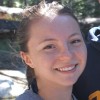 About the author: Elsbeth Sites is pursuing her B.S. in Biology at UCLA. Her addiction to the Food Network has developed into a love of learning about the science behind food.
About the author: Elsbeth Sites is pursuing her B.S. in Biology at UCLA. Her addiction to the Food Network has developed into a love of learning about the science behind food.
Read more by Elsbeth Sites

